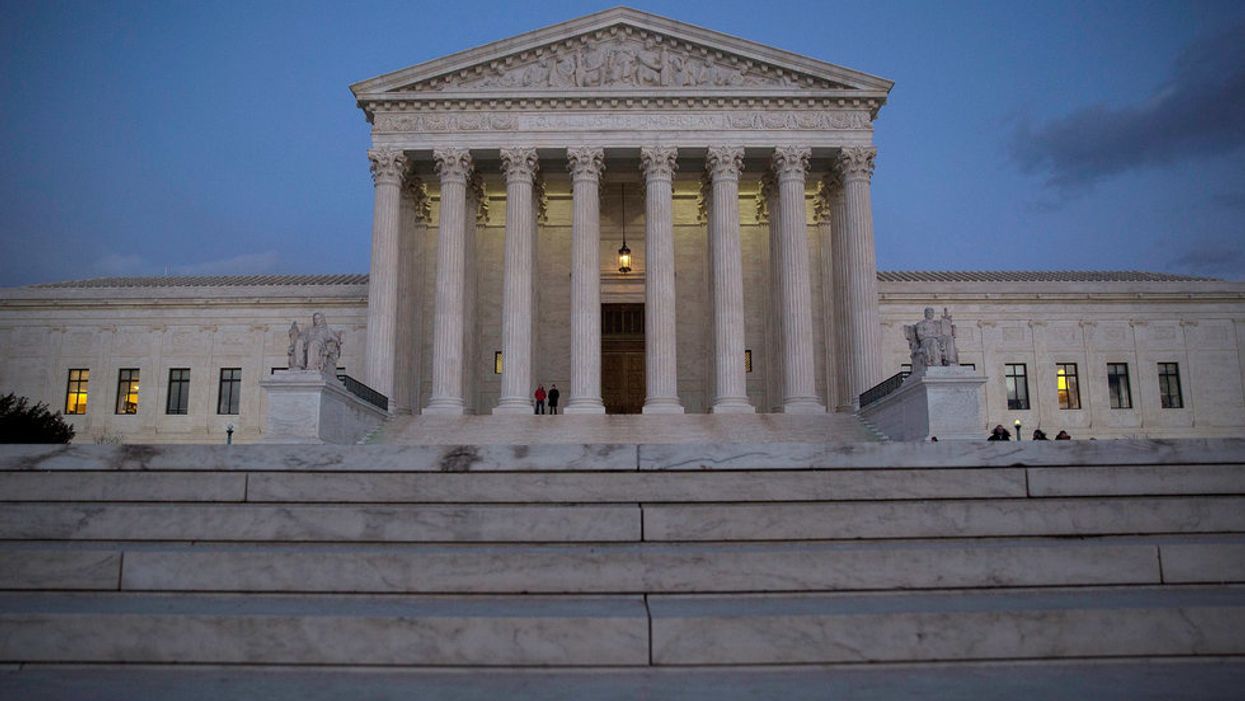Jacobson is founder and CEO of No Labels, which strives to unite people of different parties to make government work. Galston is co-founder.
Sometimes an idea is so logical and sensible that we can't let it go, no matter how often it proves not to work. Such is the case with continuous calls to end gerrymandering and to reform campaign finance laws.
Big money's corrosive effect on campaigns and gerrymandering's callous, power-grabbing distortion of neutral political maps are obvious evils that must be remedied, right? Without question, they are troubling realities that feed public cynicism about our political system. The push to reform them is well-intentioned and, on the surface, completely logical.
But a closer look reveals something strange: Powerful forces, including Congress, have tried for decades to significantly reduce money's role in politics, to little effect.
Much the same is true for gerrymandering, the deliberate drawing of congressional and state legislative districts to help one party and hurt the other. Nearly half the states have some form of nonpartisan or bipartisan redistricting commission, and yet political polarization – in Washington and state capitals – keeps worsening. In-depth studies of redistricting suggest that gerrymandering is a fairly small part of the problem.
What villains are gutting these civic-minded efforts to make our elections fairer and our government more civil? In the case of campaign finance, the Supreme Court repeatedly has sided with those who say restrictions on political giving and spending quickly run afoul of free-speech protections. As for gerrymandering, the problem is largely us, the American people, as we gerrymander ourselves by choosing to live with ideologically like-minded neighbors.
Post-Watergate reforms eliminated several blatant abuses of political money. But as election spending kept soaring, advocates pushed for new regulations. In 2002, Congress passed the McCain-Feingold act. It focused largely on restricting "soft money" and "issue advocacy" ads.
Over the next eight years, however, the Supreme Court steadily chipped away at McCain-Feingold and other efforts to limit political money's scope and impact. The most celebrated (or reviled) case is the Citizens United decision of 2010. The court ruled that the First Amendment's free-speech clause bars restrictions on independent expenditures by corporations, labor unions and other associations.
This followed earlier rulings that already had weakened McCain-Feingold. The Supreme Court, even before President Trump's nominees came onboard, has made clear that it sees many efforts to further limit campaign donations and expenditures as unconstitutional infringements on speech. While some additional measures, particularly in the area of disclosure, would meet the Supreme Court's constitutional test, more serious changes probably would require a constitutional amendment, an exceedingly high bar. For the foreseeable future, structural campaign finance reform, no matter how meritorious, is going nowhere.
As for legislative district maps, studies show that well-intentioned people place too much blame on gerrymandering for our political ills, especially when they suggest it increases polarization. In fact, the "Big Sort" phenomenon – people choosing to live and work among like-minded neighbors – plays a huge role in creating solidly red and solidly blue districts. People vote with ballots, yes, but also with their feet and moving vans.
As a result, our nation's states and counties have become much more politically polarized in recent years, even though they're not redistricted. FiveThirtyEight reports that in the 2016 presidential election, "more than 61 percent of voters cast ballots in counties that gave either Clinton or Trump at least 60 percent of the major-party vote. ... That's up from 50 percent of voters who lived in such counties in 2012, and 39 percent in 1992."
Earlier, political scientists Nolan McCarty, Keith Poole and Howard Rosenthal wrote: "the strongest argument against over-emphasizing the politics of apportionment [in the U.S. House] is the fact that the United States Senate (which of course is never redistricted) has endured an almost identical history of polarization."
If efforts to reduce the debilitating impact of gerrymandering and campaign spending yield such thin results, what are better ways to spend our energies? The nonpartisan group we founded, No Labels, will offer several proposals in the coming weeks.
They will include provocative but serious ideas for: changing the way Congress elects its leaders; boosting lawmakers who are brave enough to work across party lines; and bringing more accountability to the roles that social media, network broadcasts and political consultants play in our nation's politics.
When sensible-sounding reforms don't work, it's time to try something else. That time has come.



















